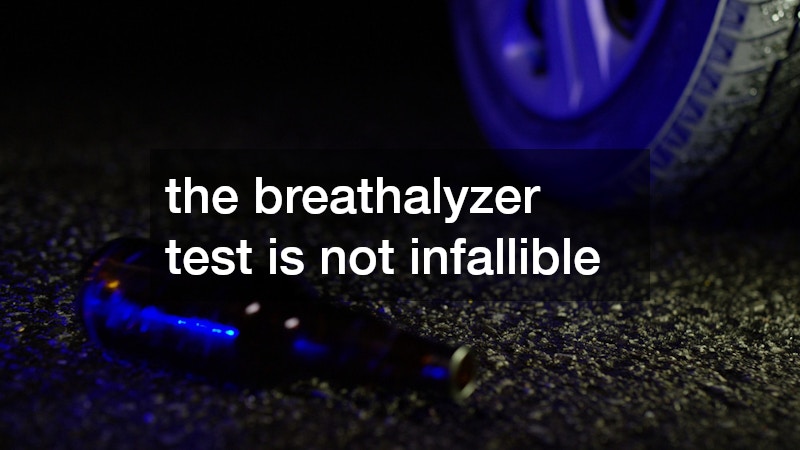
Driving Under the Influence (DUI) is a serious offense that can lead to significant penalties, including fines, license suspension, and even imprisonment. However, not every DUI arrest results in a conviction, as there are numerous defenses and loopholes that skilled criminal defense attorneys might employ. The complexities of DUI cases often provide opportunities for legal professionals to identify weaknesses or errors in the prosecution’s case.
Understanding the strategies used in DUI defense is crucial for both defendants and legal practitioners. By staying informed, individuals facing charges can work with their attorneys to achieve favorable outcomes.
Additionally, those studying law or pursuing a career in legal defense can benefit from familiarizing themselves with these common defensive tactics.
The strategies discussed in this article highlight the importance of due process and the need for well-prepared defense tactics. Each DUI case is unique, and the approach a defense attorney takes often hinges on the specifics of the incident and the available evidence. Depending on the jurisdiction and the circumstances, certain loopholes may be more applicable or successful.
Challenging the Legality of the Traffic Stop
One of the initial tactics used by criminal defense attorneys in DUI cases is to challenge the legality of the traffic stop. The Fourth Amendment protects citizens from unreasonable searches and seizures, and this includes stops by law enforcement. If an attorney can prove that the officer lacked reasonable suspicion or probable cause for stopping their client, any evidence obtained during the stop, including breathalyzer results, can be deemed inadmissible in court.
Establishing an illegal stop requires a thorough examination of police reports, dashboard camera footage, and eyewitness testimony. Defenders will seek inconsistencies in the officer’s account or lack of a solid legal foundation for the stop. Successfully proving a stop was unlawful can lead to a dismissal of the charges or a significant weakening of the prosecution’s case.
This tactic, while common, requires a deep understanding of constitutional rights and case law precedents. Engaging a skilled attorney who is well-versed in such matters is essential. With the right approach, defendants can ensure their trial is fair and that their rights are protected under the law.
Questioning the Accuracy of Breathalyzer Tests
Breathalyzer tests are a standard tool used to measure blood alcohol content (BAC) during DUI investigations, but their reliability can be contested. Criminal defense attorneys often challenge the accuracy of these devices, questioning factors like device calibration, operator error, and environmental conditions. By doing so, they may successfully argue that the BAC recorded does not accurately reflect the defendant’s level of intoxication.
The accuracy of a breathalyzer test can also be influenced by physiological factors unique to the defendant, such as medical conditions or dietary habits, which might skew results. Additionally, the device’s maintenance records are scrutinized, as infrequent calibration or outdated software can impact functionality. An attorney’s ability to demonstrate these potential discrepancies can cast doubt on the core evidence against their client.
Due to these variables, the breathalyzer test is not infallible, and its results are only as reliable as the methods used to obtain them. When defending against DUI charges, challenging this evidence can be a cornerstone of a successful strategy. This emphasizes the significance of having a knowledgeable attorney to navigate such intricacies effectively.
Disputing Field Sobriety Tests
Field sobriety tests are another element police use to establish probable cause for DUI arrests, yet they are subjective and not always definitive. Defense attorneys argue that these tests are inherently flawed due to their reliance on an officer’s judgment and the numerous factors that can influence performance. Conditions such as uneven pavement, poor lighting, adverse weather, or even the defendant’s footwear can lead to false results.
Understanding the potential for error in field sobriety tests, attorneys meticulously review the circumstances under which the tests were administered. Video evidence and witness statements can aid in demonstrating the test’s unfair administration or inaccuracy. By highlighting these inconsistencies, lawyers strive to diminish the perceived validity of the officer’s evaluations in court.
The argument against field sobriety tests also involves questioning the scientific basis and standardization of the procedures used. While these tests are intended to assess coordination and balance, many factors unrelated to intoxication can influence performance. Attorneys leverage these arguments to bolster the defense, ensuring that the defendant receives a fair trial.
Challenging Blood Test Procedures and Results
Blood tests are often seen as more definitive than breathalyzer tests in determining BAC, but they too can be contested. Criminal defense attorneys examine the procedures used to collect, store, and analyze the blood sample. Errors in these stages, such as incorrect labeling or contamination, can compromise the test’s integrity.
Furthermore, chain of custody issues can arise when sample handling protocols are not strictly followed. Defense strategies often include investigating whether the individuals involved in the testing process adhered to all necessary guidelines. By exposing weaknesses in the handling and analysis of blood samples, attorneys may argue for their inadmissibility or diminished credibility.
Another angle of defense may focus on external factors influencing BAC, which could contribute to unjust results. Legal experts suggest that medical conditions, prescription medications, or certain diets might artificially inflate BAC levels. Through detailed examination, attorneys build cases that emphasize these inconsistencies, creating reasonable doubt.
The use of loopholes and challenges in DUI defense underscores the necessity of proficient legal representation. Skilled criminal defense attorneys are adept at identifying and exploiting weaknesses in the prosecution’s case to the benefit of their clients. For individuals charged with DUI, the stakes are high, and understanding the potential for defense can significantly impact their legal journey.
This article serves as a reminder of the complexities involved in DUI cases and the myriad of factors that can influence their outcomes. The strategies discussed demonstrate the value of comprehensive legal knowledge and careful case examination. For those facing DUI charges or pursuing a career in legal defense, remaining informed about these common defenses is essential.
In conclusion, the right defense can transform the trajectory of a DUI case, turning possible convictions into dismissals or reduced charges. The expertise and experience of criminal defense attorneys make a critical difference, highlighting the profound impact that informed and strategic defense can provide.

